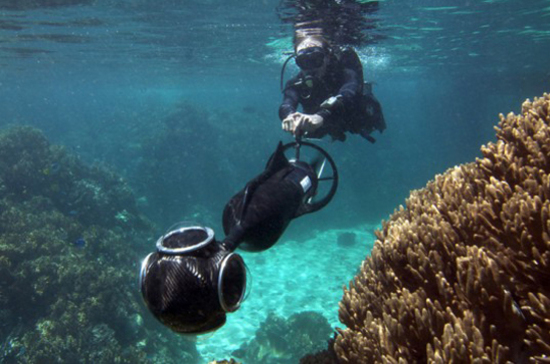Google creates a panoramic service "Google SeaView"

This service will work in much the same way that Google Street View works. Only of course, there will be no road markings, cars and people. All because the project is dedicated to the Great Barrier Reef, which surrounds most of the coast of Australia. It is because of the reefs that the coast of the continent has previously been known as very dangerous - now the seamen’s troubles related to the reefs also happen. So, the new project of Google will allow creating a panorama of the Great Barrier Reef, where the smallest detail will be visible - be it a fish or a piece of coral.
The project will involve special cameras capable of working at depths up to 100 meters. Photographers wearing scuba gear are going to get about 50 thousand panoramic shots of both the reef and its inhabitants. You can access the photo database through Google Earth and Google Maps.
')
The name of the project, published in the title - “Google SeaView”, is not yet official, it is so called by some developers. Of course, the goals pursued by the Google team are quite clear. First, it is the fixation of the development of the coral reefs of the coast of Australia. In the future, it will be possible to compare data from future research with the current picture. It is this comparison that will allow us to track the relationship between climate change and oceanic ecosystems.
In addition, the project provides for the creation of a clear map of the coast of Australia, indicating the smallest features. Seamen already need this - they will have at their disposal accurate data on the basis of which it will be possible to create modern navigation maps. Now ships, especially tankers, are constantly in danger - with the slightest mistake of the captain, the ship may have an accident. And besides the ship itself and its crew, the hardest ecosystem will suffer. We all know what a tanker crash can lead to.
Scientists of various specialties also have at their disposal the most valuable data with which you can work. In general, the project can be useful to many, thousands of specialists, and millions of people will enjoy viewing the panoramas of ocean life.
Via dvice
Source: https://habr.com/ru/post/138952/
All Articles